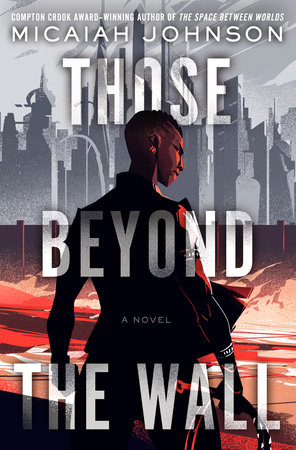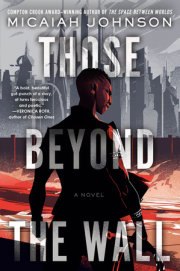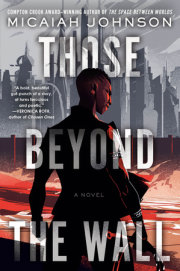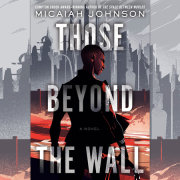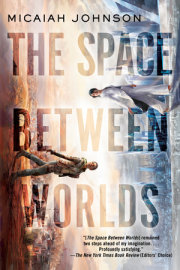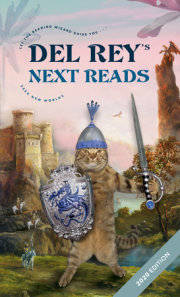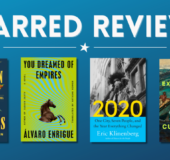Chapter One They call me Mr. Scales because I’m a snake.
Or because I’m real balanced.
Or because my father lent metal.
Depends who you ask, and they’re mostly wrong. Doesn’t matter. Wrong and right are moods in Ash. Not values. We tell one another stories we know aren’t true, and we’re glad to hear them as long as they stretch. No one cares if the endings are happy; we only care that they eat up time.
I like hearing stories. I’m not great at telling them, and I don’t like doing things I’m not good at, but I don’t have a choice. Too many of the other tellers are dead, and they’re waiting for me to say their part.
We don’t like witnesses in Ashtown, but I guess that’s what I am now.
When it happened I was on drop-off. I was not supposed to be on drop-off. I’m the mechanic. I fix things. I’m supposed to work back at the row downtown unless I get bored enough to beg Mr. Silk for a week’s alt duty. But Mr. Cheeks’d been flaking, and he’s covered my ass before, so I was covering his by doing his drop-off. You don’t need to know any of this to understand what happened next, but I told you—I’m bad at stories.
Exlee was waiting for me when I came in. Exlee is always waiting for me, or maybe their face just looks that way because it’s the face they wear to greet clients. I don’t mind if it’s just for show or just for me. It looks like they’re happy to see me, like their life is brighter because I’ve walked through the House’s door, and that’s all I need.
“Hey, Pretty Girl.”
No one is more careful about gender than the proprietor. Exlee doesn’t even strictly believe girls and boys exist separately, but they still call me Pretty Girl because I like being called a girl as much as I like being covered in grime from other runners’ rides. Girl, I don’t mind. Pretty’s a lie, but even a lie sounds good coming out in Exlee’s silk-smoke voice.
“Hey, Boss.”
I call Exlee Boss because I used to, and because they’re the only person in the wastes the emperor won’t get salty at if he finds out.
I slid the package along the bar, deliberately stopping it just shy of Exlee’s grasp because I wanted to steal the simple pleasure of watching those long, gold-dusted fingers tipped with glittering nails reach for its edge like the uncurling legs of a glamorous spider. They tucked the package behind their fan so delicately it was like someone tucking away a love letter from an admirer, or a raptor tucking away a chick. It looked like anything but a drop-off. I’m not sure what’s in the brown bundle, but it comes from the emperor and goes to the House so we runners are all sure it’s payment. What the two most powerful people in the wastes could consider valuable enough to trade’s a mystery to me, but I don’t really think in terms of value. I like to watch pretty things move. I like to make broken things fixed. I’m simple.
I remember that Helene X was dancing on the femme stage. We’ve been friends since even before I used to dance in the slot right before hers, so on my way out I stopped to watch her because I always do and always have. I always would have, too, if the world hadn’t forgotten itself right then.
Helene’s Wiley City all over—true pale, not that chalk-wash new providers use—with golden hair. That’s the part I want to tell you. I want to tell you how she looked golden right before, twirling with her back too straight to have ever really been from here. I want to tell you how her eyes and mouth were that almost-but-not-quite-shut she’d perfected, an invitation the way a half-closed door can make you want to come inside more than one flung wide open. I wish I could describe the way her skin was pale but didn’t look like a corpse.
Until it did.
It began at her neck. The tight ridge of it pulsing, at first strange enough to be sensual and then too much to be anything but grotesque. By the time the bones at the back of her neck had pushed through the skin of the front it was too late for her to scream, though her mouth made the shape. Her eyes were wide open by then, too. The front of her torso cracked in, then back out like her ribs were wings pushing through the wrong side. Finally, the bones broke through her chest cavity like something being born, the accompanying blood an arc of spray that painted the crowd.
The hot splatter hitting their skin gave them permission to panic. Everyone screamed. Everyone ran. I walked toward her. I don’t know why. I fix things, I guess. It’s what I do. I climbed onto the stage I’d last stepped foot on over a decade ago and gathered her fracturing torso into my lap. I held her together. She insisted on breaking apart. I held her harder. But then I was just breaking her too. Sometimes when you want to fix something too bad, you break it. The way you can shatter metal if you get it too hot, even if all you’re trying to do is mend a crack. This was something I should already have known.
In the end, I don’t know if I held her together more than I tore her apart, but I know that’s how they found me: like a real runner, bloodied up and still trying.
“Mr. Scales, report.”
I’ve been cradling a glass of f***-yourself-up juice from Exlee’s secret stash since they pulled me away. The House calls it tar—it isn’t, but it’s thick as gum paste and it numbs your whole mouth on its way to numb everything else, so it might as well be—and I’m wondering where I can find a vat of it to dive into when the voice comes again.
“Back from the edge, Scales,” he says, this time a whisper that comes with a hand squeezing my wrist.
I look up at my commanding officer.
“Huh?”
“I said report,” Mr. Cheeks says.
We both know he didn’t, but there’re two other leathers checking out the scene and it wouldn’t do to act too casual.
“Yes, sir.” I slide the glass away. “Body looks like it’s been lead-piped from every direction, but there’s no assailant. Everyone saw the kill. No one saw a killer.”
He nods, flexing the sea of tattoos he calls a neck, the only bare spots his pretty face and the column of his throat—left deliberately empty in case he ever considers being a colossal moron and falling in love. Usually I spend too long staring at that three-inch strip of uninked brown, but not tonight. Tonight his Adam’s apple is too prominent to remind me of anything but Helene X’s bones coming from the back to break out the front.
The two runners move out of earshot, and Cheeks leans in.
“You gonna puke?”
“You gonna f*** off?”
He holds up his palms--also tattooed, though they fade so fast the design changes from year to year. “Wouldn’t blame you. It’s a bad one, and you knew her better than the rest of us.”
“I’m solid,” I say, and it’s not just talk.
I went through all the corpse exposure training the emperor could throw at me when I joined, and that was back when I was still a teenager in boot camp with lieutenants who assumed I’d never seen a dead body. Before I’d been pulled away, I’d forced myself to stare at what was left of Helene X. I took in the damage; not just what I’d seen happen, but what I’d missed. While I’d been trying to force her ribs back together like she was an oil pan that’d bottomed out in the off-roads, the tremors had continued down, shattering her hips, inverting her legs. I stared long and hard, trying to fit the pieces back where they were supposed to go, trying to find a pattern in the damage. And there is a pattern. I can’t quite see it, but I know it’s there. This can’t just be chaos.
Cheeks lets out one of his long-suffering sighs. “I’m sorry about this. You were covering for me, if I’d . . .”
“No sweat. You couldn’t have known. No one could have.” The smile I force hurts, but I’m desperate to ease his guilt. “You can make it up to me Wednesday.”
“Wednesday?”
I fake an appalled face. “Full moon? Midnight buggying? I outride you? You weep at your lack of skill?”
“Not how I remember it.”
“That’s all right. Denial is a fine coping mechanism.”
“We’ll see,” he says, straightening back into superior officer formality as another runner approaches.
I can tell from my periphery who it is. Too tall and pale to be anyone else. F***ing Cross. Upside is, Cross walking in means I’ve got an acceptable target for all my impotent rage. I don’t telegraph, but because he knows me as well as anyone ever will, Cheeks says, “Play nice, Scales,” before I can even open my mouth.
It wasn’t an order though. His mistake.
I’m still making eye contact with him when I shout, “Who let Ruralite trash into the House?”
Copyright © 2024 by Micaiah Johnson. All rights reserved. No part of this excerpt may be reproduced or reprinted without permission in writing from the publisher.

